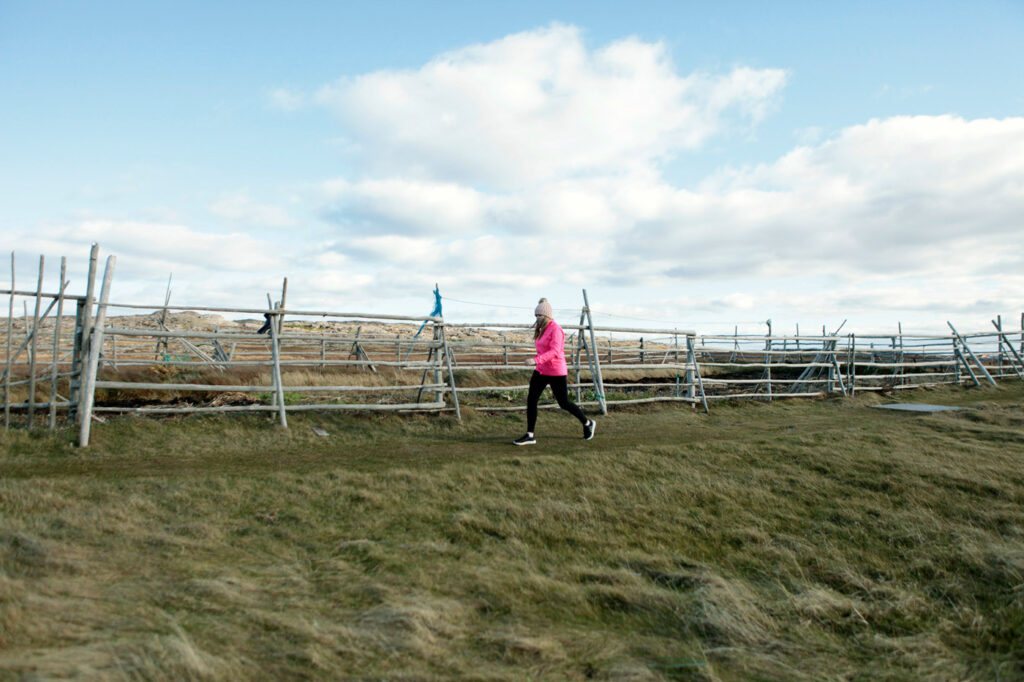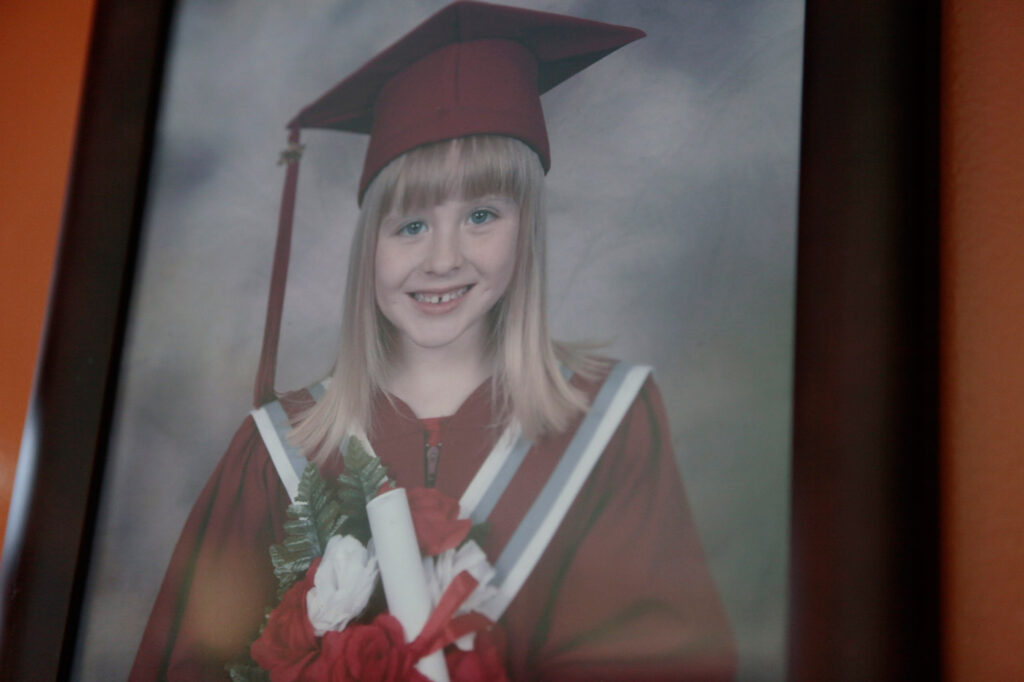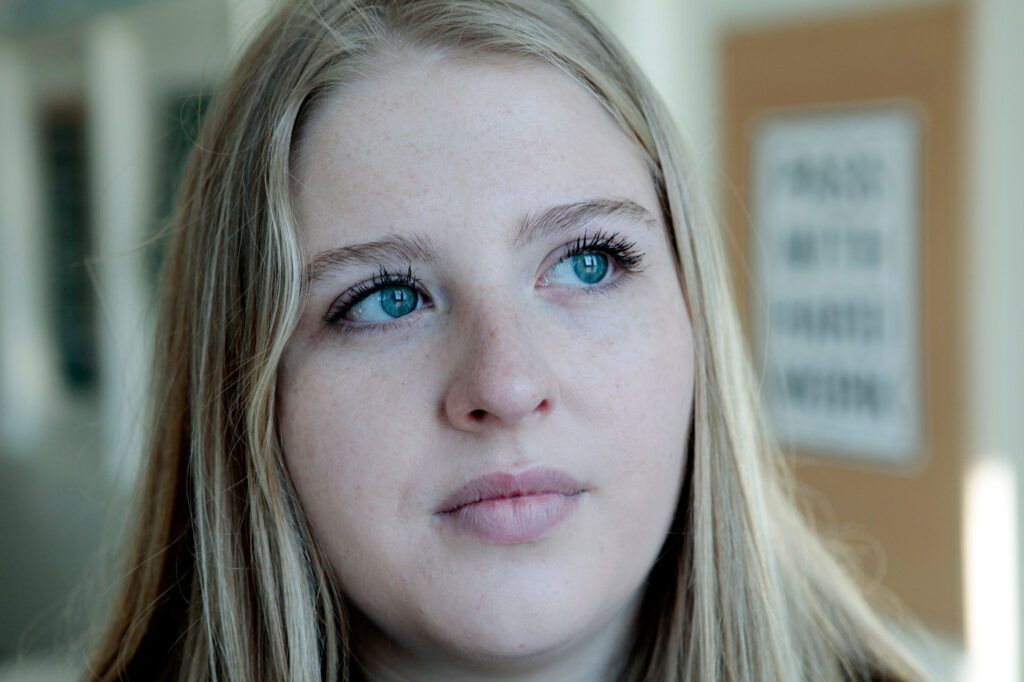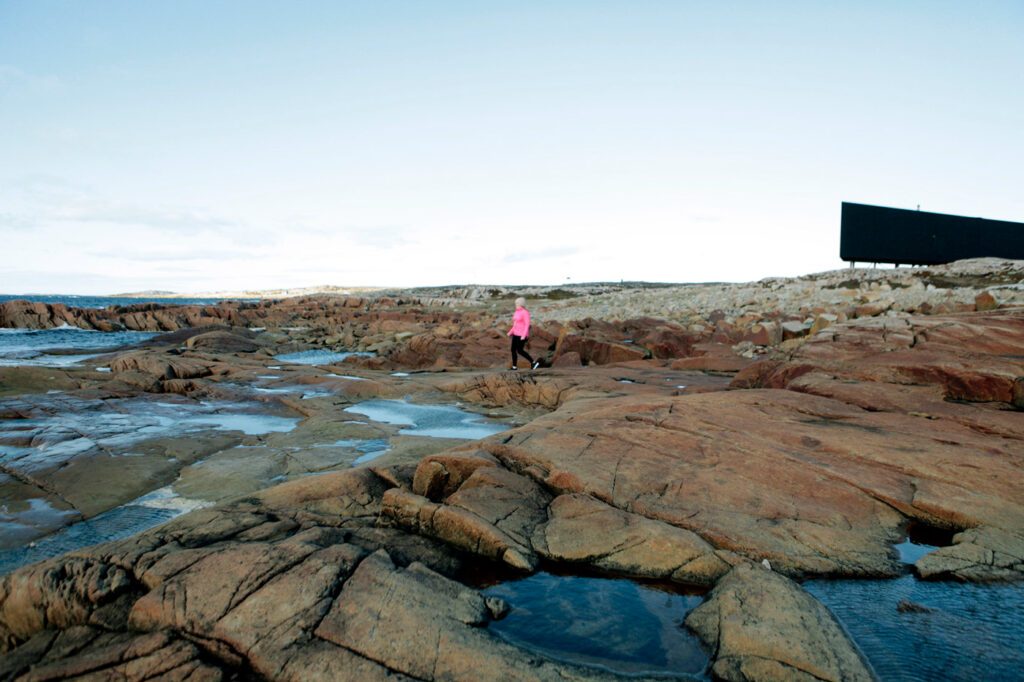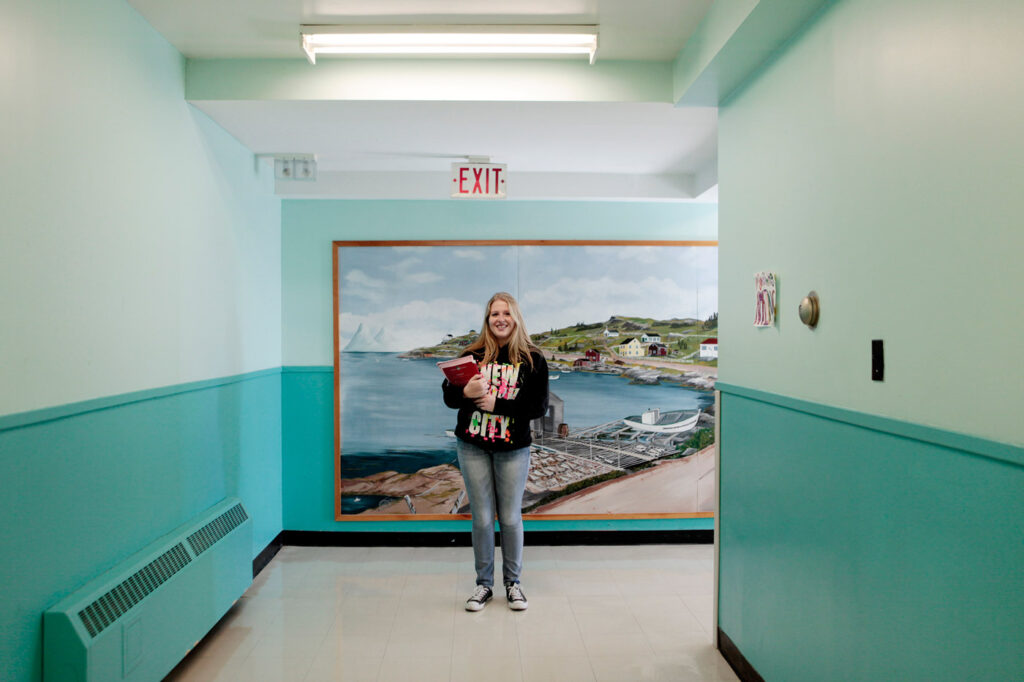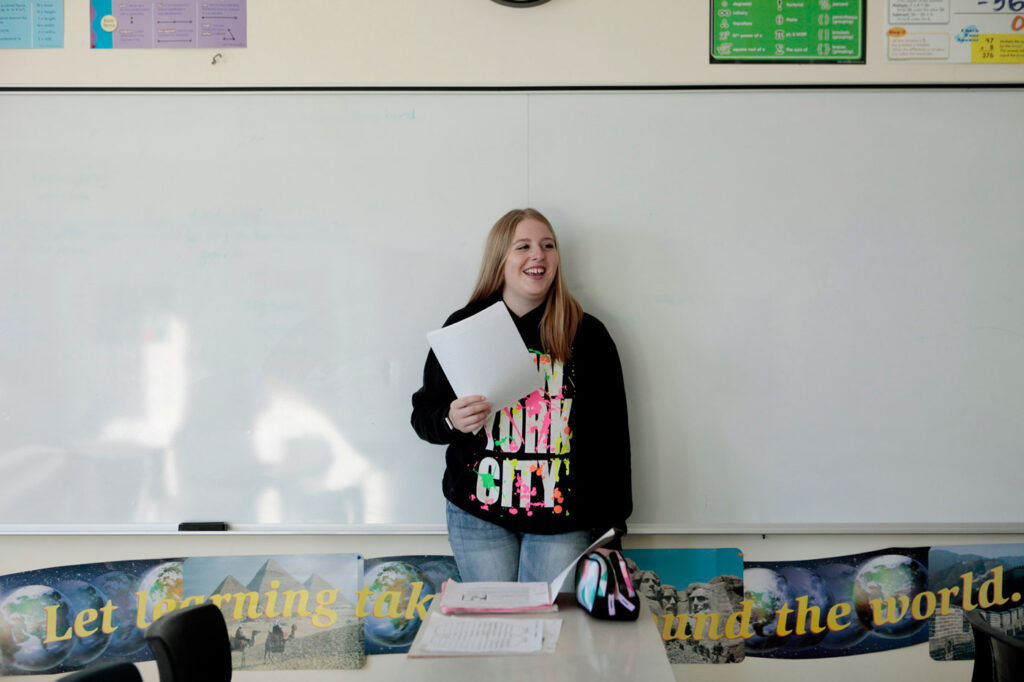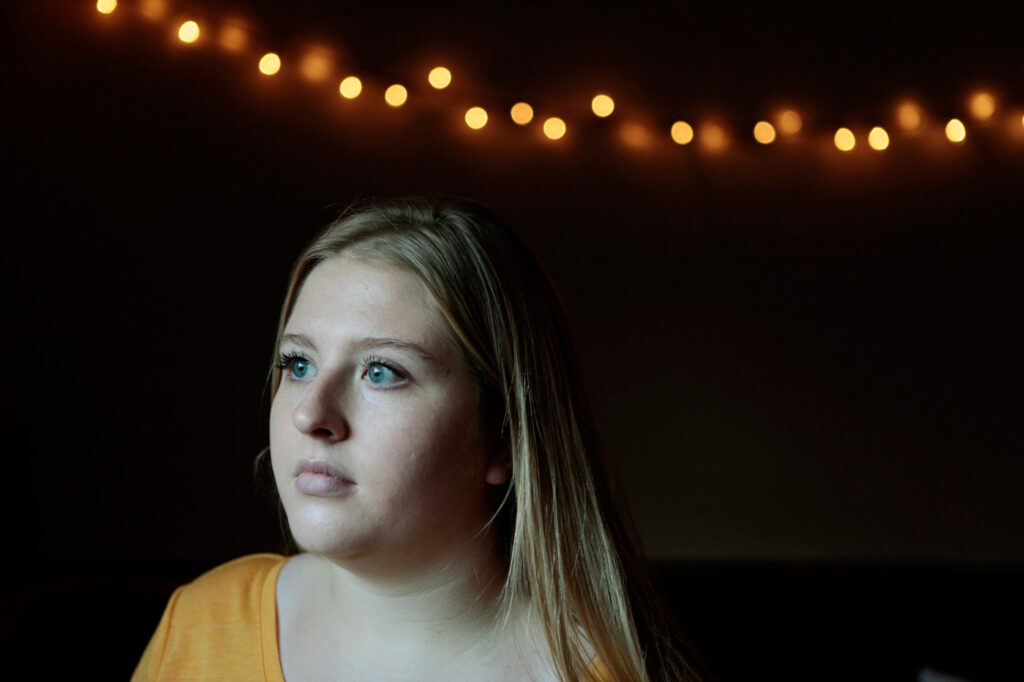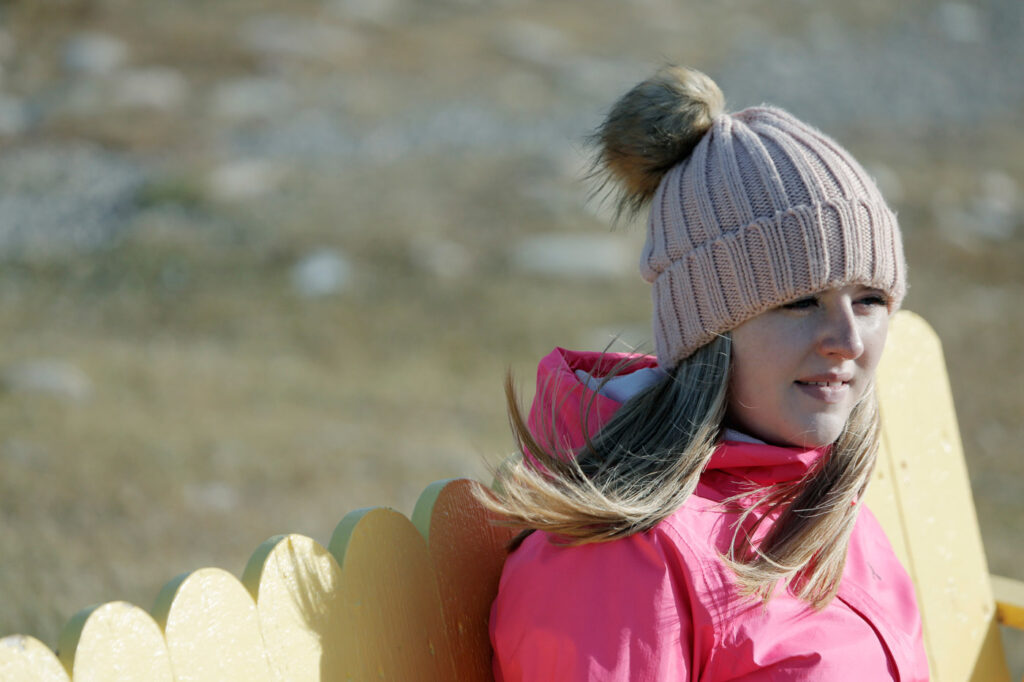The Floret—Mackenzie Hewitt
August 27, 2019
“This is home no matter what.”
For Mackenzie Hewitt, Joe Batt’s Arm has always been home. She’s grown up walking ocean-bounded trails, picking berries, riding four-wheelers, and living a relatively safe and somewhat wild existence on the outport island her family has inhabited for generations. The house that she shares with two siblings and her parents is a popular gathering place. “This is the house everyone comes to,” Mackenzie says, explaining the presence of her two teenaged girlfriends sitting at the kitchen table. “I’ve been here for four days,” one of them quips.

